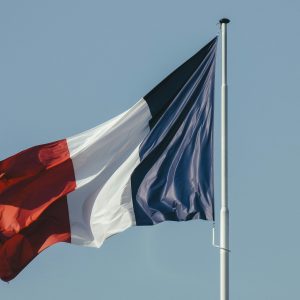Danish Muslim converts fight silent battles every day
COPENHAGEN, Denmark (AA) – This is the third Ramadan for Cemal Mathias as a man of faith. Converted to Islam in January 2021, currently living in Aarhus city and a truck driver by profession – this is how he introduced himself at a Turkish mosque hours before Iftar.
He likes being in the mosque because this is where he found his new community. He feels at home with a community that appreciates his presence among them, makes him feel part of themselves and makes him forget his loneliness – albeit only for a few hours.
“Ramadan is different for a reverted Muslim,” the bespectacled Mathias who is in his late twenties shared.
“People of faith from Muslim-majority countries even if they are living in non-Muslim countries find their support system like family and friends. And especially in this month they have a home, closed ones who share the fasting experience,” he said.
Mathias said: “But for the reverted Muslim like me from the Muslim-minority countries, we don’t really have support systems beyond mosques, like family and friends who can understand or share our religious experience. And that feeling of loneliness is felt more in Ramadan.”
“No one in my family is Muslim so there is no one there to celebrate with. When I go home it is just me and when people now ask me about marriage if I would prefer to get married to a Danish revert, I always tell them that I want someone who grew up Muslim because then when it comes to religious festivities like Ramadan and Eid, we have a family to celebrate with,” he added.
While loneliness remains a bigger personal issue for the converted ethnic Danes, there is something bigger that often remains unacknowledged. An estimated 5% of Denmark’s population is Muslim. Most Muslims in Denmark are either immigrants or descendants of immigrants from countries such as Türkiye, Pakistan, Iraq and Somalia.
For Mathias, an-anti Muslim wave is creeping in Danish society that he believes cannot be camouflaged despite official claims.
In recent years, there have also been political debates and controversies regarding the integration of Muslims into Danish society, including issues such as the wearing of the hijab and halal animal slaughter. Experts suggest that the genesis of all this debate goes back to an elephant in the room that is often not admitted in the mainstream political spectrum: Islamophobia.
The European Islamophobia Report 2022 named Denmark as the most vulnerable country for Muslims, along with France and Austria.
According to Amna Hassani, research director at the Center for Muslim Rights in Denmark, Muslims are on the lowest rung of the social and economic ladder along with refugees. Muslims also face discrimination because of stricter citizenship and the country’s “ghetto policies” targeting low-income Muslim communities.
Islamophobia is taking away their avenues to have a voice in society, and one way of doing that is by removing citizenship or the ability to gain citizenship, she said, adding that the Muslim community in Denmark can experience different kinds of discrimination, including “micro-agressions” from people that question Muslims’ belonging to Denmark. They also face structural discrimination which is seen in policies where someone from a Muslim-majority country may find it harder to access housing or jobs.
“Another way of expressing discrimination is actual hate and violence on the streets. We have seen an increase in hate crimes against Muslims in recent years,” said Hassani. A 2018 report by the Danish National Police indicates that in the 112 hate crimes that were religiously motivated, 56% victims were Muslim.
Mathias rubbished the claims of certain Danish politicians who have publicly maintained that there is no space for Islamophobia within the borders of the country.
“I have been spat on the roads by two middle-aged men after they spotted me praying in a corner. I have been told in a family gathering through a nonchalant manner that perhaps I like oppressing women that is why I reverted to Islam,” he said, while still maintaining a smile on his face.
“Islamophobia is a reality,” he said.
Moments later, Mathias joined Iftar and later Maghrib prayers. The people started to leave the mosque, but he stayed for Isha and later Taraweeh prayers.
“I try to spend as much time as possible here,” he said. “I am happy here.”










